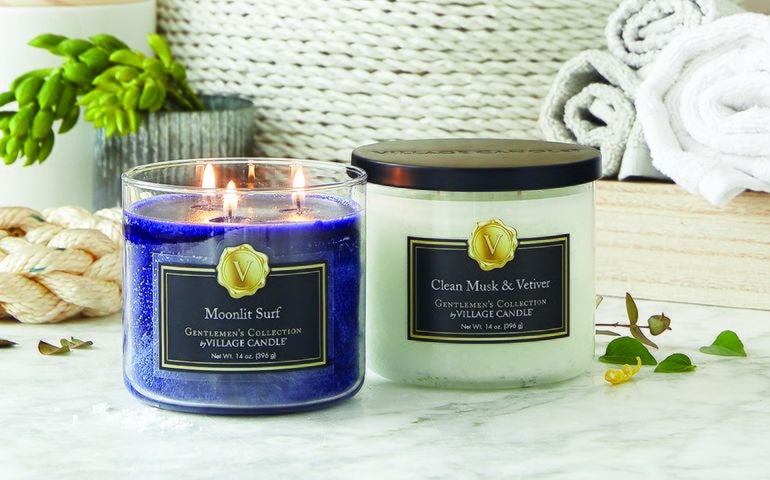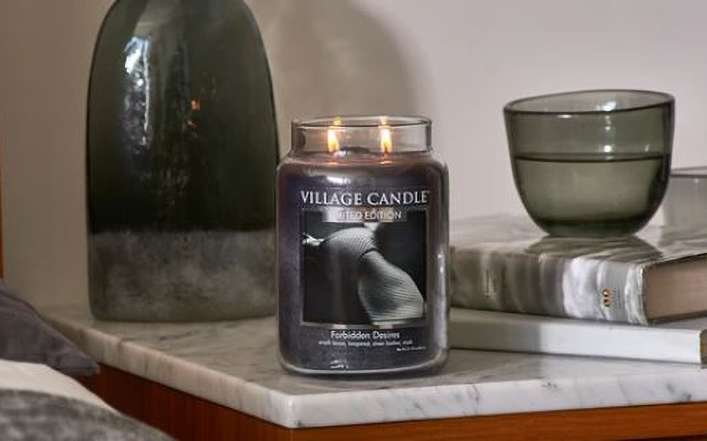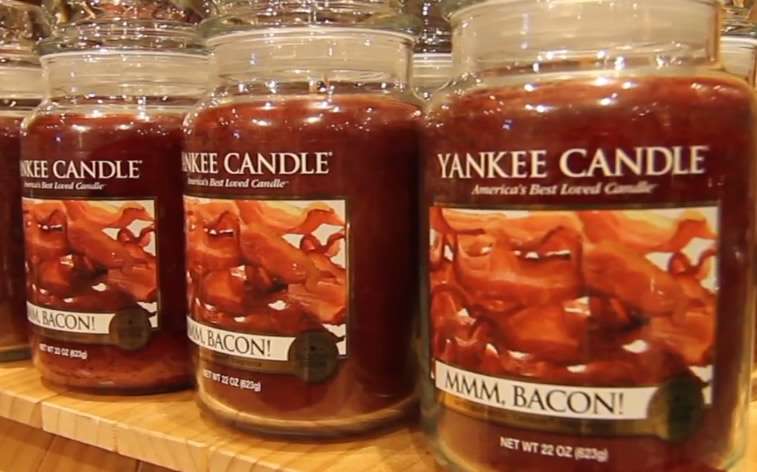
Processing Your Payment
Please do not leave this page until complete. This can take a few moments.
Will the Maine 'mandles' trend catch fire for Father's Day?
 Courtesy / Village Candle
Stonewall Kitchen and subsidiary Village Candle, both based in York County, are launching a line of scented candles specifically for men, including Moonlit Surf and Clean Musk & Vetiver.
Courtesy / Village Candle
Stonewall Kitchen and subsidiary Village Candle, both based in York County, are launching a line of scented candles specifically for men, including Moonlit Surf and Clean Musk & Vetiver.
A new tie? Personalized golf tees?
How about a Leather & Musk Noir candle, scented with notes of white thyme, fresh bergamot, mineral water and Amalfi lemon?
A York company is hoping U.S. consumers purchase the latter and other new candle varieties as gifts for Father’s Day this Sunday. Specialty food and home goods producer Stonewall Kitchen and its recently acquired subsidiary, Wells-based Village Candle, launched their Gentlemen’s Collection of scented candles last week.

Father’s Day buying appears strong despite the pandemic and economic downturn, according to the National Retail Federation. A survey conducted in early May by the trade group predicts spending on gifts for Dad will reach $17 billion this year, the highest total in the annual study’s 11-year history and up from $16 billion in 2019.
But Stonewall sees its new product line as more than a holiday promotion, said Janine Somers, vice president of marketing and direct-to-consumer sales.
“We are launching this collection with seven fragrances and will look to expand the collection over time,” she told Mainebiz.
In addition to Leather & Musk Noir, the new line includes Bergamot & Amber, Clean Musk & Vetiver, Dark Berries & Cedar, Hearthside Pine, Moonlit Surf, and Spiced Tobac & Honey. Each three-wick candle comes in a 14-ounce glass bowl and sells online for $16.

But marketing such “mandles” poses unusual challenges, and other companies have had mixed success at it.
Yankee ingenuity
U.S. candle sales total $3.2 billion annually, and men make up about 10% of the customers, according to the National Candle Association.
That narrow market slice is misleading, however, since an increasing number of women buy candles as gifts for men, according to the trade group’s chair, Kathy LaVanier. In addition, there is a growing market for candles that appeal to both genders.
“Candles are extremely giftable, and we’re starting to see a market direction that is more unisex,” she told Mainebiz in a phone interview.
All of this makes it tricky to target scented candles at a male audience. Yankee Candle, based in South Deerfield, Mass., has tried.
Founded in 1970, Yankee practically invented the mass market for scented candles and today is the country’s largest manufacturer of them. Owned by Newell Brands (Nasdaq: NWL), Yankee has nearly 500 stores, 19,000 wholesale accounts and reported 2015 sales of $832 million.
In 2012, Yankee pioneered the mandle niche with scents that carried memorable names like First Down, Mmmm Bacon! and Riding Mower. Describing its 2 X 4 fragrance in a news release at the time, the company said, “The warm, unmistakable scent of freshly planed wood and sawdust evokes a sense of confidence and quality.”
But although the line generated social media buzz, Yankee discontinued its men’s candles in 2014.

The changing mandle market
Yankee Candle never explained why it abandoned the men's line, but a website that follows the industry, ManCandleReviews.com, reported in 2018 that the goal was “to concentrate instead on more sophisticated aromas.”
“[Yankee’s] arguably sexist angle has faded along with the sale of candles from other market players that focused strictly on candle aromas that mimicked body functions and racing fuel,” the website said. “Today’s man wants more.”
LaVanier agreed, saying, “There’s now a particular demand for candles among young men — millennials and Gen Z — who in general are more interested in their living environment.”
While male customers may only make up 10% of the market, she noted, that’s a huge increase from five years ago, when they were just 2%.
Trend-spotting media have noticed: Men's candles are cool. In March, GQ magazine published "A Man's Guide to Scented Candles," and Esquire ran an April feature titled "The Best Candles for Your Summer of Isolation."
The mandle demand is also being fed by new types of chandlers, the traditional name for candle makers. In the past few years, fashion giants like Louis Vuitton have entered the candle market, as have startups with fashion roots, like Los Angeles-based Boy Smells.
Launched in 2016 by former designers Matthew Herman and David Kien, the company makes candles “conceived beyond the gender binary.”
“We wanted to have products that were embracing masculine and feminine simultaneously in a simple and straightforward way that wasn’t overtly targeted to one gender,” Herman and Kien say on the company website.
Not cursing the darkness
Like all candle companies, Boy Smells has been hurt by the public health and economic crisis.
Although it usually sells wholesale to about 300 stores, Boy Smells found in March that nearly all of those accounts had canceled their orders. The company had to quickly pivot to e-commerce consumer sales, Herman said in a May news report.
That’s no easy feat, especially when your product’s key attribute — fragrance — can’t be replicated online.
But Boy Smells has succeeded in the virtual candle market, with e-commerce now representing 50-75% of the company’s sales, Herman said.
LaVanier, who besides heading the NCA is the founder of Ohio-based Renegade Candle Co., reported similar growth. Online sales at her company have grown five-fold since the start of the pandemic, she told Mainebiz.
There’s no question that the crisis has decimated brick-and-mortar candle businesses, but she believes there’s an upside to the new normal. With more people working from home and staying at home in general, the ritual of lighting candles “helps mark the transition from the work day to the personal day.”
“We’ve benefited, in a way,” LaVanier said. “Coronavirus has actually spurred people to purchase and use candles.”
At Stonewall, Somers said, “People are spending more time at home than ever … So whether customers are looking to enhance or rethink their personal spaces and newly created home offices or trying to ease some of the tensions of these challenging times, burning our candles can create both ambience and a soothing experience.”
Two on a match
Mandles represent a departure for both Stonewall Kitchen and Village Candle.
Stonewall was founded in 1991 by Jonathan King and Jim Stott, who initially sold homemade blueberry jam at a farmers’ market in Portsmouth, N.H. Now owned by a Boston private investment firm and employing about 440 people, Stonewall sells a wide range of food and home decor products through wholesale channels, online and at nine company stores. Acquisitions have helped fuel the growth; the company’s purchase of Village Candle in February was Stonewall’s fourth.
Candles, however, were relatively new. Stonewall sells a few under its own brand, with familiar Maine scents like pine, but that’s about it.

Village Candle was founded in 1992 in Topsham by Paul Aldrich, who began making candles as a hobby while between jobs. In seven years his business had to grown to $30 million in annual revenues, Inc. magazine reported then. Today, Village has 46 employees and its products are sold online and in retailers throughout the U.S., with a growing presence in over 32 countries. LaVanier called it one of the industry's “bigger” candle makers, although not on the scale of Yankee.


The two company’s products appear a bit similar, however. Like Yankee, Village sells a wide range of candles in glass apothecary jars. The company’s logotype even resembles one Yankee had used until a recent rebranding.
But the Gentlemen’s Collection doesn’t look anything like the usual Village Candle candles. A gold “V” replaces the company’s name at the top of the label; the name appears in line of small print reading “by Village Candle.”
Will the new look help Village succeed where its larger competitor has retreated? LaVanier thinks that could be tough.
The men’s candle market is becoming more focused on unique brands that appeal to specific tastes or a “destination sense” related to a particular place, she said.
“There isn’t one big thing. There are a lot of very targeted ideas that together make up a lot of market share,” LaVanier said. “It’s challenging to be tuned into a particular market.
“For Village Candle, trying to flex their brand into the men’s market will mean doing some extraordinary things.”










0 Comments